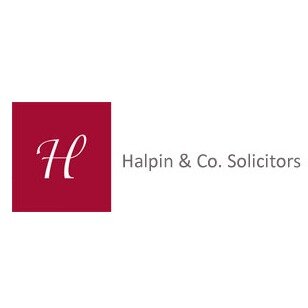Best Pension Lawyers in Cork
Share your needs with us, get contacted by law firms.
Free. Takes 2 min.
List of the best lawyers in Cork, Ireland
About Pension Law in Cork, Ireland
Pension law in Cork, Ireland, encompasses the legal frameworks and regulations governing retirement plans and pension schemes within the region. Pensions are an essential component of financial planning, aiming to provide a stable income to individuals after they retire from work. In Ireland, pensions can be broadly categorized into state pensions, occupational pensions, and personal pensions, each with its specific rules and provisions. Understanding these categories and the local laws governing them is critical for ensuring a secure and well-managed retirement.
Why You May Need a Lawyer
There are several situations where you may require legal assistance regarding pensions in Cork, Ireland:
- Disputes over pension entitlements or benefits
- Advice on the best type of pension scheme for your needs
- Issues related to the mismanagement or maladministration of pension funds
- Help with understanding complex pension regulations and tax implications
- Transfer of pension rights between schemes or jurisdictions
- Assistance for employers in setting up pension schemes for their employees
- Legal representation in case of claims or litigation involving pensions
Local Laws Overview
Pension law in Ireland is governed by a combination of national legislation, European Union directives, and guidelines from regulatory bodies. Key aspects relevant to pensions in Cork include:
- The Pensions Act 1990: This act provides the framework for the establishment, regulation, and operation of pension schemes, including rules on the funding and disclosure of information.
- Funding Standard: Ensures that defined benefit schemes maintain sufficient assets to meet their liabilities.
- Revenue Approval: To qualify for tax benefits, pension schemes must obtain approval from the Revenue Commissioners.
- The Social Welfare Consolidation Act 2005: Governs the state pension system, including eligibility and benefit levels.
- Occupational Pension Schemes: Employers' obligations to provide and manage pension schemes for their employees.
- EU Regulations: Various directives from the EU affect pension regulations, including the Institutions for Occupational Retirement Provision (IORP) II Directive.
Frequently Asked Questions
1. What is a state pension?
A state pension is a regular payment from the government to individuals who have reached the state pension age and have paid enough social insurance contributions during their working life.
2. What is an occupational pension?
An occupational pension is a pension scheme provided by an employer to their employees, which can be a defined benefit or defined contribution scheme.
3. What is a personal pension?
A personal pension is an individual retirement savings plan that a person can set up independently of their employer. These plans are typically managed by financial institutions.
4. When can I start receiving my state pension?
The state pension age in Ireland is determined by the government and can vary for different cohorts of people. It’s essential to check the latest regulations to know when you can start receiving your state pension.
5. Can I transfer my pension from another country to Ireland?
Transferring a pension from another country to Ireland is possible, but it is subject to specific regulations and tax implications. Legal advice is recommended to navigate this process.
6. How are pensions taxed in Ireland?
Pensions in Ireland are subject to income tax, though there are tax reliefs available on contributions to pension schemes. The tax treatment can be complex, so consulting a tax advisor or lawyer is advisable.
7. What happens to my pension if I change jobs?
If you change jobs, you have a few options, such as leaving your pension in the old employer's scheme, transferring it to your new employer's scheme, or transferring it to a personal pension plan.
8. What is a pension fund trustee?
A pension fund trustee is a person or institution responsible for managing a pension fund's assets and ensuring the funds are used in the best interests of the beneficiaries.
9. What should I do if I have a dispute over my pension?
If you have a dispute over your pension, you should seek legal advice to understand your rights and the best course of action. Disputes can often be resolved through mediation or legal proceedings.
10. How can I check the status of my pension benefits?
You can check the status of your pension benefits by contacting your pension provider or scheme administrator. They are required to provide regular statements and updates on your pension status.
Additional Resources
Here are some resources that can be helpful if you need legal advice regarding pensions in Cork, Ireland:
- The Pensions Authority: The regulatory body overseeing occupational pensions in Ireland.
- The Revenue Commissioners: Provide information on tax implications for pensions.
- Department of Social Protection: Offers guidance on state pensions and social welfare benefits.
- Citizens Information: Provides comprehensive information on various pension schemes and legal entitlements.
- Financial Advisors: Professional advisors can offer personalized advice on pension planning and management.
Next Steps
If you need legal assistance regarding pensions in Cork, Ireland, here are some steps to follow:
- Identify Your Needs: Clearly define the pension-related legal issues you are facing.
- Consult a Lawyer: Seek advice from a solicitor or law firm specializing in pension law.
- Gather Documentation: Assemble all relevant documents, such as pension statements, employment contracts, and correspondence.
- Explore Mediation: Mediation can often resolve disputes without the need for litigation.
- Consider Legal Action: If necessary, your lawyer can guide you through the process of beginning legal proceedings.
By taking these steps, you can ensure that you receive the appropriate legal guidance and support for your pension-related concerns.
Lawzana helps you find the best lawyers and law firms in Cork through a curated and pre-screened list of qualified legal professionals. Our platform offers rankings and detailed profiles of attorneys and law firms, allowing you to compare based on practice areas, including Pension, experience, and client feedback.
Each profile includes a description of the firm's areas of practice, client reviews, team members and partners, year of establishment, spoken languages, office locations, contact information, social media presence, and any published articles or resources. Most firms on our platform speak English and are experienced in both local and international legal matters.
Get a quote from top-rated law firms in Cork, Ireland — quickly, securely, and without unnecessary hassle.
Disclaimer:
The information provided on this page is for general informational purposes only and does not constitute legal advice. While we strive to ensure the accuracy and relevance of the content, legal information may change over time, and interpretations of the law can vary. You should always consult with a qualified legal professional for advice specific to your situation.
We disclaim all liability for actions taken or not taken based on the content of this page. If you believe any information is incorrect or outdated, please contact us, and we will review and update it where appropriate.
















